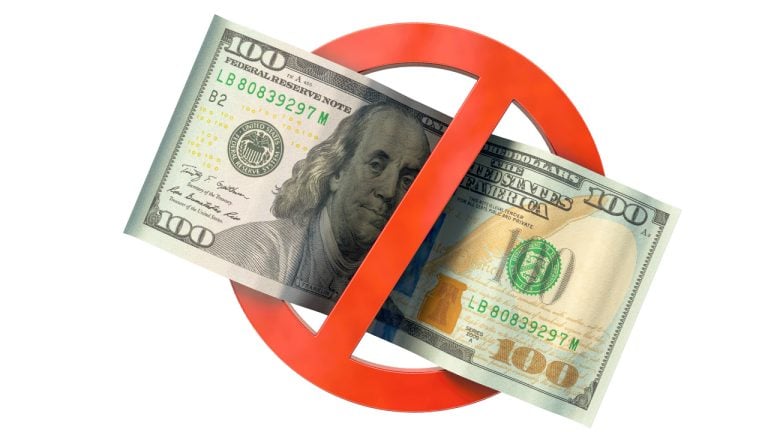
Top US-based crypto exchange Coinbase is listing a new security-focused Ethereum (ETH) altcoin, along with other major platforms. Coinbase announced via the social media platform X that the crypto project Safe (SAFE) landed a listing on the platform as an “experimental asset.” “Safe is now live on Coinbase.com and in the Coinbase iOS and Android […]
The post New Security-Focused Ethereum Altcoin Goes Live on Coinbase and Other Crypto Exchanges appeared first on The Daily Hodl.

A customer at Wells Fargo says he was shocked to discover $4,000 in cash had been taken out of his safe deposit box – and the bank refused to reimburse the funds. Jeffrey Temmer says he realized his safe deposit box was empty when tried to grab cash for Christmas shopping, reports Milwaukee-based FOX6 News. […]
The post Wells Fargo Refuses to Reimburse Client After $4,000 Vanishes From Safe Deposit Box – How the Customer Took Matters Into His Own Hands appeared first on The Daily Hodl.

Twitter users noticed thousands of Safe deployments to Optimism, leading to speculation that it may be an attack, but the developer of Worldcoin confirmed that this activity was merely an app migration.
Worldcoin is the cause of a slew of Safe deployments to the Optimism (OP) network over the past week, according to a June 27 social media post from Tiago Sada, head of product for Worldcoin developer Tools for Humanity.
The deployments had caused a stir on Twitter, as users wondered who was causing them and what their purpose was. Some Twitter users had speculated that it might be a Sybil attack or some kind of address-farming technique used to profit from coins sent to the wrong address.
Deploying more safes - steady lads https://t.co/W5DiQirrP0
— tiago sada (@tiagosada) June 27, 2023
A Safe (previously called “Gnosis Safe”) is a multisignature smart contract wallet. It is often used by development teams to ensure that multiple team members must sign off on each transaction that spends funds held in common or that upgrades an app. Safes are also used in some newer consumer wallets that employ account abstraction, such as ones that provide gas-free transactions.
Worldcoin is known to extensively use Safes, as it offers gas-free transactions to verified humans. The Worldcoin team recently announced that it was migrating its app from Polygon to Optimism.
Over the course of six days, from June 21 to June 27, Optimism address 0x86c5608362b3fbbeb721140472229392f754ef87 created over 50 subaccounts, each of which performed between 10,000 and 15,000 transactions, most of which created new Safe wallets. On the morning of June 26, on-chain researcher Spreek noticed the strange transactions and reported them to the community through a Twitter thread.
Spreek expressed bewilderment at the transactions, stating: “possible im misunderstanding something about this (gnosis safes are basically wizardry to me ngl).” In response, Luigi.eth, a contributor to the GnosisDAO — a decentralized autonomous organization — stated that the DAO alerted the Gnosis team, although the transactions didn’t look “malicious.”
Related: Sam Altman’s Worldcoin secures $115M for decentralized ID
The thread was shared by Parsec Finance founder Will Sheehan, who mentioned cryptically that “I think we can guess with p high probability what this is.” This caused speculation among Sheehan’s followers. One user thought the deployments might be a Sybil attack on the network, while another thought it might be some kind of attempt to farm addresses that may mistakenly be sent funds in the future.
It's a farm of all possible wrong-address sends, you m0rons. Imagine a DAO that, by mistake sends a cross-chain bridge swap from multisig to the same address on a different chain. Here all funds will be received by this minter. 100$ for a chance to get $10mln
— v3v3 (@vae_vic) June 27, 2023
Some users on both Spreek and Sheehan’s threads guessed that the deployments were not an attack. Instead, they theorized that these transactions might be caused by Worldcoin preparing to migrate its app to Optimism.
One user claimed “eyeball coin” might be the cause, apparently meaning Worldcoin, as the person stated, “folks were saying eyeball coin but dunno (or understand why).” Tools for Humanity is the creator of an iris-scanning device used for identity verification, called "the Orb," which is integrated with the Worldcoin app.
After less than an hour of this speculation, Tools for Humanity's Sada revealed what was really going on. Resharing Spreek’s original post, he stated, “Deploying more Safes — steady lads,” implying that the transactions were in fact caused by Worldcoin migration.
So it appears that Optimism users can breathe a sigh of relief. The network does not appear to be in the grips of a massive Sybil attack or address-farming scam at the moment, or at least not one related to these transactions.
Optimism upgraded to its new “Bedrock” version on June 6, bringing lower fees and shorter deposit times. Its transaction count has increased dramatically since the upgrade.
 On Monday, Binance CEO Changpeng Zhao, also known as CZ, announced that the company had decided to convert $1 billion worth of BUSD from the Industry Recovery Initiative fund into three different cryptocurrencies. Zhao noted that significant onchain movements would be noticeable following the announcement. CZ’s Decision to Convert $1 Billion BUSD Comes Amidst Troubles […]
On Monday, Binance CEO Changpeng Zhao, also known as CZ, announced that the company had decided to convert $1 billion worth of BUSD from the Industry Recovery Initiative fund into three different cryptocurrencies. Zhao noted that significant onchain movements would be noticeable following the announcement. CZ’s Decision to Convert $1 Billion BUSD Comes Amidst Troubles […] On March 4, 2023, cryptocurrency exchange Bybit announced that it had suspended U.S. dollar deposits via bank transfer. Bybit cited “outages” from its partner as the reason for the suspension of USD deposits via bank transfers and the SWIFT network. Bybit Suspends USD Deposits, Wire Transfer Withdrawals Open Until March 10 The cryptocurrency exchange Bybit, […]
On March 4, 2023, cryptocurrency exchange Bybit announced that it had suspended U.S. dollar deposits via bank transfer. Bybit cited “outages” from its partner as the reason for the suspension of USD deposits via bank transfers and the SWIFT network. Bybit Suspends USD Deposits, Wire Transfer Withdrawals Open Until March 10 The cryptocurrency exchange Bybit, […]
Binance CEO Changpeng Zhao said self-custody is a “fundamental human right,” while Michael Saylor said self-custody is necessary to prevent powerful actors from accumulating and abusing power.
Industry heavyweights have urged crypto investors and traders to self-custody their crypto assets amid the significant market uncertainty brought on by the collapse of FTX.
In a Nov. 13 tweet to his 7.6 million followers, Binance CEO Changpeng “CZ” Zhao pushed the crypto community to store their own crypto via self-custody crypto wallets.
“Self custody is a fundamental human right. You are free to do it anytime. Just make sure you do do it right,” he said, recommending investors to start with small amounts in order to learn the technology and tooling first:
Self custody is a fundamental human right.
— CZ Binance (@cz_binance) November 13, 2022
You are free to do it at any time.
Just make sure you do do it right.
Recommend start with small amounts to learn the tech/tools first.
Mistakes here can be very costly.
Stay #SAFU
Speaking to Cointelegraph during the Pacific Bitcoin conference on Nov. 10-11, MicroStrategy executive chairman Michael Saylor also discussed the merits of self-custody given the current market environment.
Saylor suggested that self-custody not only provides investors with property rights, it also prevents powerful actors from corrupting the network and its participants:
“In systems where there is no self-custody, the custodians accumulate too much power and then they can abuse that power.”
“So self-custody is very valuable for this broad middle class, as it tends to create [...] this power of checks and balances on every other actor in the system that causes them to be in continual competition to provide transparency and virtue,” he explained.
Backstage interview with the charming Michael @saylor ⚡️
— Joe Nakamoto (@JoeNakamoto) November 11, 2022
✅ check @Cointelegraph to read his advice on how to handle the bear market
@pacificbitcoin
pic.twitter.com/yWZmEsgQar
Saylor also made the argument that self-custody plays an important role in maintaining the integrity and security of blockchains because it increases decentralization:
“If you can’t self-custody your coin, there’s no way to establish a decentralized network.”
The recent events that transpired last week appear to have already pushed many investors and traders towards self-custody solutions.
Since the sudden collapse of FTX in early November, the number of Bitcoin (BTC) withdrawals on centralized exchanges reached a 17-month high, according to on-chain analytics firm Glassnode:
#Bitcoin $BTC Number of Exchange Withdrawals (7d MA) just reached a 17-month high of 3,424.315
— glassnode alerts (@glassnodealerts) November 13, 2022
View metric:https://t.co/QyB7zouWee pic.twitter.com/Su4biTEM7h
While at the same time, net inflows into self-custody wallets have soared.
Smart contract wallet Safe — previously Gnosis Safe — reported over $800 million in net inflows since last Tuesday when the FTX saga began to spiral out of control:
Over $800M net in-flows into @Safe since last Tuesday. $325M on Thursday alone. Looks like a flight to self-custody. pic.twitter.com/hiuij9dp7s
— lukasschor.eth | Safe (@SchorLukas) November 13, 2022
The outflow from centralized exchanges caused by the FTX meltdown also created problems for hardware-based cryptocurrency wallet provider Ledger — who were temporarily unable to process a mass influx of inflows due to scalability issues.
The token of the Binance-acquired self-custody wallet Trust Wallet (TWT) also increased 84% to $2.19 over the last 48 hours before cooling off to $1.83, according to CoinGecko.
The token allows token holders to participate in deciding how the wallet operates and what technical updates are to be made.
Related: Self-custody is key during extreme market conditions: Here's what experts say
Investor confidence in centralized exchanges took another hit on Nov. 13 when Crypto.com accidentally sent 320,000 ETH to Gate.io.
Ethereum bull and host of The Daily Gwei Anthony Sassano on Nov. 13 called out the crypto exchange over its mistake and later stated that investors should not store assets on centralized exchanges “for longer than you need to.”
Meanwhile, Blockchain Association head of policy Jake Chervinsky said that self-custody education should be one of the first things newcomers learn, while Bitcoin proponent Dan Held told his 642,800 Twitter followers that self-custody is a crucial element to self-sovereignty:
Self custody your Bitcoin and run a full node.
— Dan Held (@danheld) November 12, 2022
That’s how you achieve self sovereignty.
Don’t trust, verify.